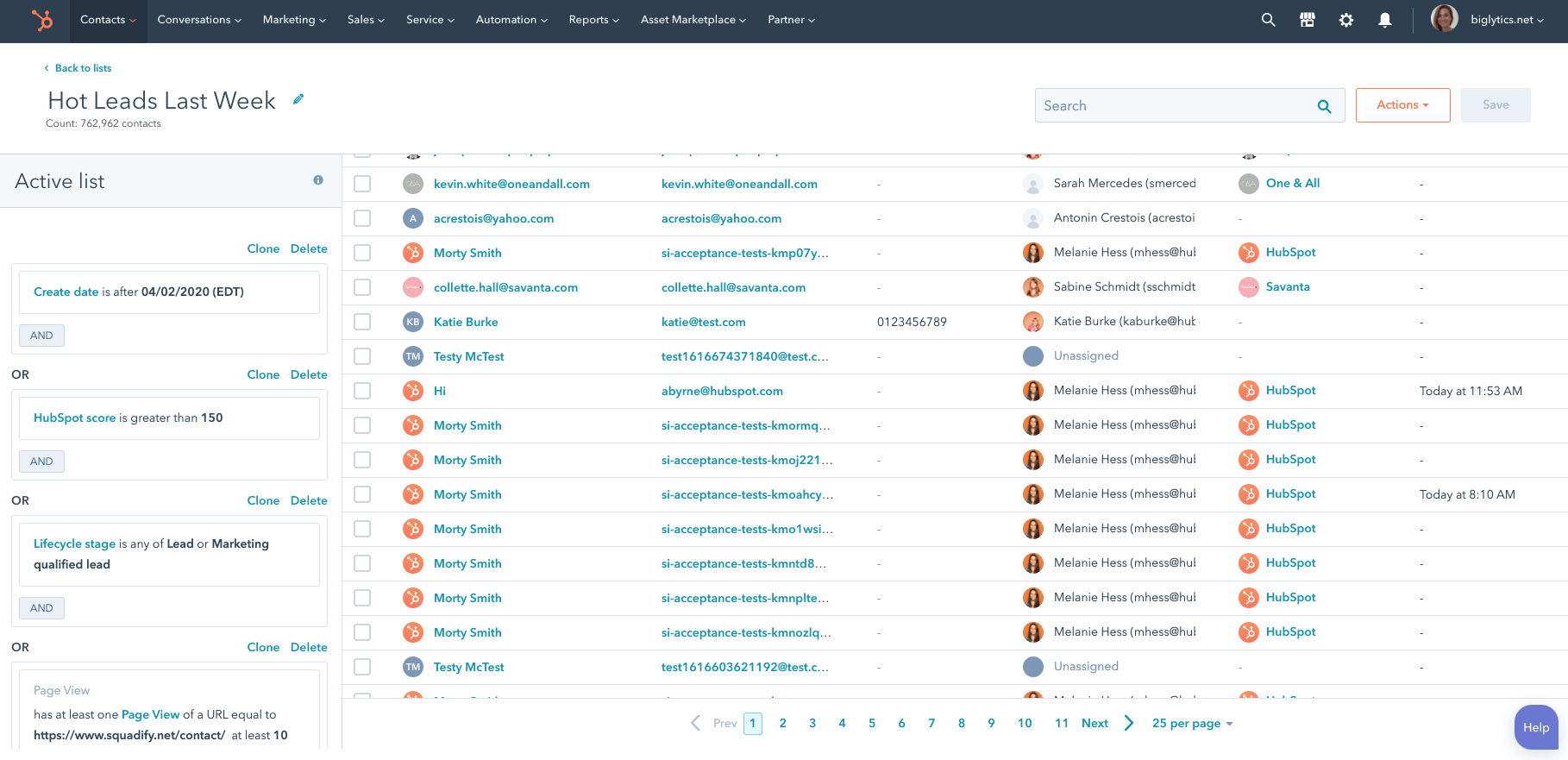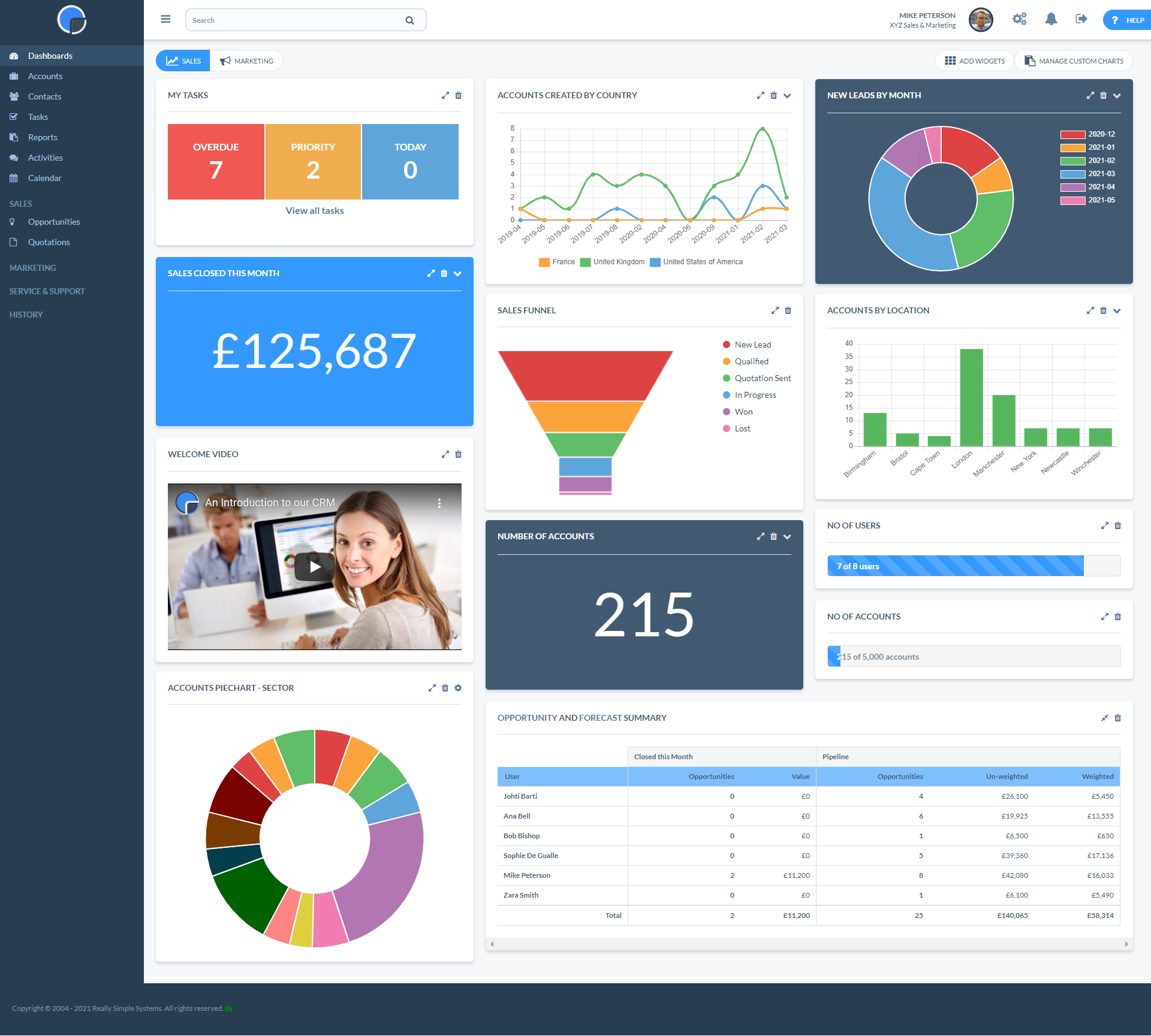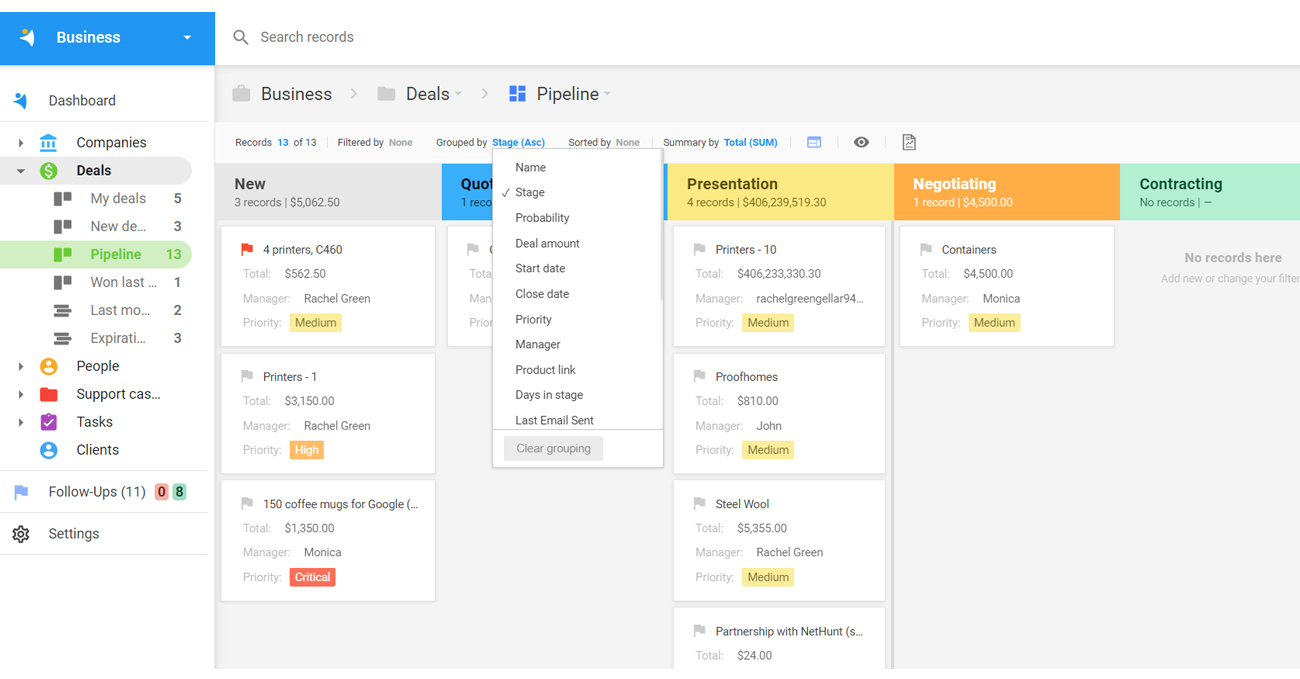-
No-code
Platform
-
Studio
No-code AI-native platform to build applications faster
Discover

-
Studio
-
AI-Native CRM


-
Industries

- Customers
-
Partners

-
About

Creatio CRM: powering manufacturing success with AI

Customer relationship management can be quite complex for manufacturing companies to excel at for several reasons. The mix of B2C and B2B operations, long sales cycles, high-value orders, and the importance of relationships with distributors can be hard to navigate without a proper manufacturing CRM solution.
Fortunately, modern manufacturing CRMs can assist companies easily address those challenges when selected and implemented according to the unique requirements of your business.
This article highlights essential features and advantages of CRM for manufacturing companies and provides a selection of 10 CRM solutions for consideration
Essential points:
- Manufacturing CRM systems act as a central source of truth, bringing together sales, marketing, customer service, operations, and partner or distributor data within a single, unified platform.
- In the manufacturing service, CRM goes beyond customer interactions; it must support complex B2B and B2C sales cycles, along with intricate relationships manufacturers maintain with partners, vendors, and distributors.
- Manufacturing CRM systems deliver a wide range of benefits, including increased sales performance, improved customer engagement, enhanced productivity, more accurate demand forecasting and production planning, better supply chain visibility, and more informed decision-making.
- Leading CRM platforms for manufacturing businesses include Creatio, FreeAgent, HubSpot CRM, Zendesk Sell, and NetSuite. These solutions are recognised for their comprehensive functionality, powerful automation capabilities, and their ability to align sales, production, and customer service processes within a unified ecosystem.
What is manufacturing CRM?
CRM stands for customer relationship management and refers to software that helps manufacturing companies manage business processes, documents, and relationships with customers, distributors, and partners throughout the entire production and sales cycle.
A CRM system for manufacturing companies consolidates operational data, such as inventory levels, order status, production schedules, and after-sales service, in a single platform, providing clear visibility across all areas of operations. It also automates industry-specific workflows, including supply chain management and procurement management, helping to streamline processes and improve overall efficiency.
Modern CRMs for the manufacturing sector are increasingly incorporating Artificial Intelligence (AI) to automate processes, convert raw data into predictive insights, and support informed decision-making. AI in manufacturing helps organisations forecast demand, identify new sales opportunities, and optimise production planning by detecting patterns that may not be immediately evident through manual analysis.

Key benefits of manufacturing CRM
A key advantage of a manufacturing CRM lies in its ability to act as a centralised source of data, bringing together information across sales, marketing, customer service, distribution, partner management, and other critical functions. By unifying these activities within a single platform, CRM systems enable manufacturers to streamline operations, reduce duplication, and enhance the efficiency and effectiveness of all customer-facing processes.
Notable benefits of CRM within the manufacturing sector include:
Increased sales
A CRM system centralises all sales activities, enabling the sales team to manage omnichannel communications with prospects more efficiently, without the need to switch between multiple platforms.
Within a single, unified view of the customer journey, both sales and marketing teams are better equipped to nurture leads and foster stronger relationships. They can respond more quickly and tailor their approach to meet individual client needs. In addition, marketing automation tools within a manufacturing CRM enable the delivery of personalised, automated campaigns that help generate a steady flow of qualified leads into the sales pipeline.
These elements greatly improve the chances of closing deals with new clients successfully, while also helping to identify further cross-sell and upsell opportunities among existing customers. Ultimately, an well-structured sales team and effectively managed sales pipeline lead to stronger sales performance and a higher rate of successful deal closures.
Learn how Howdens generated over 1,200 new qualified leads and improved the conversion rate by +18,75% in just six months.
Improved customer engagement
Having a single source of truth for customer information enables more personalised communication and the development of stronger, long-term relationships. A CRM tailored for the manufacturing sector helps ensure that existing customers remain a priority, allowing you to build on previous relationships and drive additional sales through automated retention campaigns.
CRM software enables customer service teams to respond promptly to enquiries by bringing together all relevant information and contact details in one place, while automatically sorting and prioritising customer requests.
By combining complete customer visibility with intelligent automation, manufacturers can deliver consistent, high-quality experiences at every stage of the customer journey. This proactive approach helps to boost satisfaction levels and significantly improve customer retention, turning one-time purchases into long-term business partners.
Enhanced productivity and collaboration
A manufacturing CRM connects various front-office departments and enables the seamless sharing of customer information across the entire organisation. For example, customer service representatives can view the communication channels preferred by a customer during the sales process and use the same approach when responding to a service request.
By centralising data from multiple departments and making it easily accessible, the CRM enhances cross-functional collaboration and helps teams work more efficiently and productively.
Additionally, CRM software offers task management functionality, allowing managers to organise their teams' work more efficiently and monitor individual performance, ultimately enhancing operational efficiency.
Automation capabilities within the CRM also help to minimise the time spent on routine tasks such as follow-ups and approvals, freeing up teams to focus on higher-value activities.
Case Study
Find out how Blueprint Automation reduced the time spent on day-to-day activities by 75% with Creatio CRM

More accurate demand forecasting and production planning
A CRM enables the sales team to forecast revenue growth based on the current pipeline and historical order data. These forecasts allow for more effective planning, scheduling, and resource allocation, removing the need to wait for orders before taking actions.
By consolidating customer data and audience insights, the CRM can generate reliable predictions around future demand. This helps manufacturers plan production with greater precision, reducing the risk of overproductions, stock shortage, or delivery delays.
Supply chain visibility
CRMs designed for the manufacturing sector enhance supply chain management by providing real-time visibility across operations, inventory management, order processing, warehousing, and distribution chains.
With improved transparency across these processes, businesses can manage production schedules more effectively, optimise inventory levels, and strengthen purchasing and procurement activities.
Informed decision-making
A CRM platform equips managers with actionable insights and data-driven intelligence, supporting more informed strategic decision-making and the optimisation of core business processes. Access to key performance metrics within a single, centralised dashboard enables executives to quickly identify growth opportunities and areas of risk, and take timely, decisive action.
Essential manufacturing CRM features to consider
Most CRM vendors offer a standard set of core features designed to support sales, marketing, and customer service teams. The following list outlines both commonly available tools and manufacturing-specific functionalities that are essential for manufacturers looking to get the most value from a CRM system tailored to the industry.
Lead and sales pipeline management
A CRM needs to give your sales team complete control over the pipeline and automate the process of tracking, scoring, and assigning leads to sales representatives. This allows you to greatly increase your conversion rate and identify weak spots in your sales strategy.
Sales forecasting
This feature allows CRM users to create sales forecasts based on their current pipeline and historical sales data. The best CRMs will give you the ability to tweak forecasting models and algorithms and select which parameters to consider and which data sets to rely on.
Campaign management
A good CRM system needs to offer campaign management tools that enable you to build, automate, and analyse personalised marketing campaigns. These tools enable marketing teams to create targeted campaigns that reach the appropriate audience at the most effective time, using data-driven insights from customer profiles and engagement history. With advanced analytics and performance dashboards, it becomes easier to monitor campaign outcomes, evaluate return on investment, and refine strategies as needed.
Customer service management
Features such as a holistic 360-degree view of the customer, contact centre, and task management are typically included in Service CRM applications to assist customer support teams. Make sure the CRM of your choice offers omnichannel customer communication, including phone calls, emails, and social media chats.
Order processing
As a manufacturer, you can greatly benefit from automating order placement and validation through a CRM, saving you time on the manual processing of these requests. Some companies may choose a separate tool to manage orders but incorporating it in your CRM is more convenient and allows you to quickly connect customer service reps if there are issues with an order.
Supply chain management
This feature allows you to track all production input, automate shipment scheduling, and minimise production downtime via automated delivery processes. You can set up product data synchronisation between multiple divisions and receive supply and shipment updates in real-time. This feature is specifically made for manufacturers; thus, it might not be available in a general CRM. Make sure to ask the vendor if they provide supply management tools.
Vendor management
A manufacturing CRM enables businesses to manage relationships with suppliers and partners more effectively. It centralises key vendor information, including contracts, pricing, performance data, and communication history, within a single platform. This functionality allows manufacturers to assess supplier performance, monitor delivery timelines, compare quotations, and ensure adherence to procurement policies and standards.
AI agents for manufacturing
One of the most innovative advancements in modern CRM for manufacturing enterprises is the emergence of AI Agents – intelligent virtual assistants designed to handle repetitive tasks, automate workflows across the organisation, and deliver actionable insights. These AI-powered agents go beyond conventional automation by interpreting context, continuously learning from data, and acting autonomously to support both employees and customers.
Within a manufacturing CRM, AI Agents can carry out a wide variety of tasks:
- Sales assistance: AI agents for sales can automatically qualify leads, suggest the most suitable offers, and even generate personalised proposals based on historical data and customer preferences, significantly enhancing sales performance. By partially automating sales processes, these agents enable sales teams to reduce time spent on administrative work and focus more on building customer relationships and engaging in strategic selling.
- Supply chain management: AI agents within the manufacturing sector can monitor production and supply chain data in real time, alerting teams about potential delays, material shortages, or inventory concerns. In addition to identifying issues, they can recommend appropriate actions to resolve them or, in the case of autonomous AI agents, take direct action themselves. This may include reallocating resources, automatically ordering missing materials, adjusting production schedules, or notifying suppliers to prevent costly downtime.
- Customer support: AI agents for customer service are equipped with natural language processing capabilities and can engage with customers through chat, social media, or email. They handle routine enquiries, process service requests, and escalate more complex issues to human agents when necessary. By deploying AI agents, manufacturers can significantly enhance the speed, consistency, and quality of customer support operations, delivering reliable, round-the-clock assistance to customers.
- Marketing optimisation: AI agents for marketing enable marketers to deliver data-driven, highly personalised campaigns that resonate with specific customer segments. By analysing customer behaviour and engagement data, AI agents can identify the most effective channels, timing, and messaging; automatically adjust budgets based on campaign performance; and recommend next-best actions to boost conversion rates. As they continuously learn from campaign outcomes, AI agents support marketers in maximising ROI and strengthening brand loyalty.
- Predictive insights: By harnessing machine learning, AI agents continuously analyse CRM data to forecast demand, detect anomalies, and recommend optimal production or maintenance schedules. These insights enable manufacturers to plan production volumes with greater accuracy, allocate resources more efficiently, and minimise the risk of costly disruptions. Through the delivery of actionable intelligence, predictive AI agents support more informed and strategic decision-making across the business.
Find out more about the powerful capabilities of AI in manufacturing
Customisation
An effective CRM system should provide customisation options, enabling manufacturers to construct workflows tailored to their specific needs and preferences. This flexibility empowers you to scale the platform as your team and business expand, ensuring that you won't need to transfer all your data and configurations to a different system when your company grows.
Integration
The ability to connect to other platforms is one of the most crucial features of manufacturing CRM. You need to prioritise a solution that seamlessly integrates with your existing manufacturing software stack, for *instance , with accounting and logistics software, email services, etc.
Analytics and reporting
Many CRM benefits come from its powerful data analysis. A comprehensive CRM system should offer customisable dashboards and robust reporting features that accommodate multiple sources of data inputs.
Ten leading manufacturing CRM software solutions
Based on research and customer reviews, ten CRM solutions have been identified that align well with the needs of the manufacturing industry and offer the key features outlined above.
Some of these platforms are specifically aimed at manufacturers, while other vendors target a wider market but offer manufacturing customisations to accompany their main CRM product
Manufacturing CRM | Core capabilities | Pricing | Most suitable for |
|---|---|---|---|
| Creatio | Agentic CRM with AI and no-code at the core; composable architecture; powerful, ready-to-use AI agents; manufacturing-specific workflows. | From £25 per user per month | Manufacturers seeking a fully customisable, comprehensive, agentic no-code CRM. |
| FreeAgent | Simple, flexible CRM ideal for small manufacturers. | From £22 per user per month | Small manufacturers seeking simplicity and affordability. |
| HubSpot CRM | All-in-one marketing, sales, and service platform with inbound automation. | From £1575 for five users per month | Mid-size to large manufacturers focused on inbound marketing. |
| Zendesk Sell | CRM built on Zendesk’s support expertise. | From £55 per user per month | Manufacturers prioritising customer support and simplicity. |
| NetSuite | ERP + CRM hybrid with extensive manufacturing management tools. | Custom pricing | Enterprise manufacturers with global operations. |
| Monday CRM | Highly visual, collaborative CRM for workflow and task tracking. | From £12 for three users per month | Teams seeking project-oriented CRM and collaboration. |
| SpotlerCRM | Simple CRM with strong marketing automation and campaign tracking. | From £520 per month | Manufacturers focusing on lead nurturing and marketing campaigns. |
| Keap CRM | Automation-first CRM for SMBs with e-commerce features. | From £299 for 2 users per month | Small manufacturers focused on automated sales and e-commerce. |
| Infor CRM | Enterprise-grade CRM integrated with Infor ERP for full manufacturing control. | Custom pricing | Large manufacturers seeking full CRM + ERP integration. |
| NetHunt CRM | CRM for Google Workspace users; seamless Gmail integration. | From £30 per user per month | Businesses already using Google tools. |
1. Creatio
Creatio is an agentic CRM and workflow platform, built around no-code capabilities and AI at its core. Designed on a composable architecture, it enables organisations to design, automate, and optimise business processes and CRM workflows, without the need for coding expertise.

The platform features built-in AI agents that function as intelligent virtual assistants, capable of analysing data, providing recommendations, and autonomously executing actions. These agents support a wide range of use cases, including lead and opportunity scoring, customer segmentation, sales forecasting, automated customer service responses, and predictive maintenance insights. Continuously learning from every interaction, Creatio’s AI agents help teams work more intelligently by identifying trends, suggesting next best actions, and proactively addressing potential bottlenecks in production or service delivery.
Creatio CRM brings together three core products, seamlessly integrated to deliver a unified and consistent customer experience:
- Creatio Sales product provides complete pipeline visibility, a 360-degree view of the customer, and AI-powered forecasting to support accurate revenue predictions and more informed decision-making.
- Creatio Marketing provides in-depth customer insights, automated multichannel campaigns, and AI-driven personalisation to boost lead generation and improve conversion rates.
- Creatio Service unifies all communication channels and employs role-based AI agents to speed up case resolution, automate complex workflows, and deliver outstanding customer support.
Together, these components create an agentic CRM ecosystem that enhances efficiency, fosters collaboration, and improves customer satisfaction at every stage of the manufacturing lifecycle.
Creatio also offers a range of manufacturing-specific features, including (but not limited to) order processing, product lifecycle management, procurement lifecycle management, and supply chain planning and tracking. Additionally, Creatio's Marketplace provides a wide selection of ready-to-use applications that can be used to optimise key processes such as production, distribution, logistics, and inventory management. With Creatio’s no-code tools and AI capabilities, manufacturers can also design custom automated processes, applications, and AI agents, without the need for professional developers resources.
Creatio is an ideal choice for manufacturers seeking a powerful agentic CRM that can flexibly adapt to the evolving business requirements.
Pros:
- A unified no-code platform to automate CRM and manufacturing workflows
- Extensive customisation options, powered by no-code and user-friendly UI
- A comprehensive suite of ready-to-use, manufacturing-specific features
- Role-based AI agents seamlessly incorporated within the platform
- Advanced analytics and reporting capabilities
- Transparent pricing structure
Cons:
- Initial learning curve due to extensive customisation options
Pricing
Creatio offers a composable pricing model, which means you can choose which functionality to purchase. The base no-code Creatio platform costs £25 per user per month. Free trial is available.
2. FreeAgent
FreeAgent CRM is a cloud-based CRM solution tailored to small businesses. FreeAgent's manufacturing CRM provides pipeline management, lead tracking, and reporting capabilities. The pre-built integrations cover essential connectors such as Quickbooks and Outlook with the ability to build additional connectors with Zapier's no-code tools.

Its user-friendly interface makes it an ideal choice for manufacturing companies seeking a straightforward CRM solution.
Pros:
- Flexible and customisable
- Quick and responsive customer support
- Easy to use
Cons:
- Reporting capabilities are not as advanced as other CRMs
- No mobile app for remote work
Pricing
FreeAgent CRM is priced from £22 per user each month
3. HubSpot CRM
HubSpot is renowned as a marketing automation platform with an impressive suite of tools for inbound lead-generation. It also offers an all-encompassing CRM solution. It helps you manage relationships with distributors and retailers, segment your leads, and create personalised marketing content powered by AI.
While HubSpot's integrations library is modest compared to other tools, it offers the core manufacturing integrations you might need. Its automated features streamline lead generation, saving valuable time, and enhancing overall sales and marketing endeavours for businesses.

HubSpot CRM is well-suited for manufacturers in search of an easy-to-use CRM with strong marketing tools.
Pros:
- Powerful marketing automation tools and analytics
- Easy to set up
- User-friendly UI
Cons:
- Limited customisation options
- Targets Enterprise-level businesses in its pricing
- Inability to purchase CRM modules unbundled
- Limited number of integrations
Pricing
Free version available. The paid version of Hubspot CRM starts at £1575 per month (includes 5 paid users).
4. Zendesk Sell
Zendesk is primarily known for its customer service platform, but it also provides Zendesk Sell, a robust CRM system for any industry. This solution aims to boost productivity of customer-facing teams and improve lead conversion through competent sales engagement tools.
Considering its roots, the highlight of Zendesk Sell platform is the customer service product, which contains task management features, contact centre, and multichannel communication options.
Other features include sales engagement tools, customisable customer data lists and templates for leads and deals, easy-to-navigate reports, and a library of 100+ integrations.

Consider adopting Zendesk Sell if you're looking for a simple and affordable solution with a sufficient marketplace for integrations.
Pros:
- Quick onboarding
- Affordable pricing models
- Proven customer service tools
Cons:
- Limited customisation capabilities
- Few marketing tools
Pricing
The pricing starts at £25 per user per month.
5. NetSuite
NetSuite’s primary manufacturing offering combines an ERP (Enterprise Resource Planning) platform with a powerful cloud-based CRM.
It provides many tools covering essential manufacturing use cases such as order management, supply chain management, shop floor control, and procurement. CRM features include sales force automation, marketing automation, and customer service and support management.

NetSuite will best suit enterprise-level manufacturers with global operations looking for a unified platform for analytics and business automation.
Pros:
- A comprehensive suite of ERP and CRM features build for manufacturers
- Powerful analytics
- Lots of integrations
Cons:
- Requires time to set up
- Steep learning curve for adoption
- Third-party integration can be challenging without a specialised support team
Pricing
Pricing for this CRM for the manufacturing industry is calculated on a custom basis.
6. Monday.com
Monday CRM is a versatile and intuitive CRM platform designed to streamline workflows and enhance collaboration within teams. With customisable features and integrations, Monday CRM facilitates efficient project management, task tracking, and communication, empowering businesses to achieve their goals effectively.
It offers manufacturing templates to help users manage production processes and organise data. However, more elaborate manufacturing capabilities, such as supply management, are missing.
Monday.com is a great solution for companies looking for an affordable and user-friendly platform for sales engagement and productivity.

Pros:
- Easy to use
- Offers manufacturing templates
- Great for collaboration
Cons:
- Weak reporting
- Underperforming marketing automation tools
- A limited number of integrations
Pricing
The pricing for Monday CRM starts at £14 per user per month for limited capabilities and features.
7. SpotlerCRM
Spotler CRM is a comprehensive CRM system designed to optimise marketing, sales, and customer support efforts.
It offers robust features for lead management, email marketing automation, and campaign tracking. With intuitive tools and analytics, Spotler CRM empowers businesses to generate, nurture, and convert leads effectively while enhancing overall customer engagement and retention strategies.

Consider SpotlerCRM if you're looking for an easy-to-use straightforward solution to track your sales, marketing, and service activities.
Pros:
- Offers Zapier-powered integrations
- User-friendly UI
- High-performance marketing tools
Cons:
- Limited customisation options
- Weak reporting tools
Pricing
Free trial available. The pricing starts at £520 per month.
8. Keap CRM
Keap CRM is an excellent choice for manufacturers seeking a comprehensive CRM solution with automation features.
This software offers customisable pipelines and stages to streamline sales processes, while its e-commerce integration can drive revenue growth. However, manufacturing businesses should note the limited customisation options for reports and the absence of a built-in telephony feature.

Pros:
- E-commerce integration
- Potent marketing capabilities
- Advanced reporting and analytics
Cons:
- Limited customisation options
- No built-in telephony feature
- Subpar mobile app
Pricing
The pricing starts at £199 per month, including 1500 contacts and two users.
9. Infor
Infor CRM is a comprehensive cloud-based application designed to streamline various aspects of CRM. It offers functionalities tailored for sales, customer service, marketing analytics, and reporting, all within a unified platform.
Infor CRM stands out for its seamless integration with its manufacturing ERP solution tailored specifically for global manufacturers. It empowers companies with enhanced visibility and automation, enabling them to respond promptly to customer demands, supplier requirements, and regulatory standards without the need for extensive software customisations. The ERP platform provides supply management, manufacturing execution system, and product lifecycle management tools.

This CRM is a great choice for global enterprise-level manufacturers looking for an end-to-end CRM and ERP solution.
Pros:
- Seamless integration with Infor ERP
- Scalable and customisable CRM
Cons:
- Poorly designed interface
- Lack of CRM integrations outside of Infor's ecosystem
- Requires a lot of training
Pricing
Pricing is available on request.
10. NetHunt
NetHunt CRM is a cloud-based platform specifically tailored to streamline sales and customer service operations.
It offers robust features for managing customer interactions, tracking sales pipelines, and organising data. Its main advantage is pre-built integration with GSuite, which allows you to effortlessly connect the CRM with Google products, including emails and calendars.

NetHunt CRM facilitates streamlined communication, personalised outreach, and efficient workflow automation, making it a versatile solution for businesses of all sizes looking to enhance their sales and customer management processes.
Pros:
- Built-in integration with Google products
- Intuitive interface
- Quick set up
Cons:
- Limited integration options
- Learning curve that comes with adoption
- No built-in telephony features
Pricing
Free trial available. The pricing starts at £30 per user per month.
Summary
Selecting the appropriate CRM for manufacturing significantly enhances business operations and boosts performance. Optimal CRM systems support partner management, automate marketing processes, and facilitate lead generation. They also promote alignment between customer-facing teams and internal departments within a manufacturing company.
Creatio is the best choice for companies looking for a powerful CRM that offers functionality tailored specifically to manufacturing processes. Sign up for a free trial to see how easy it is to streamline your operations with Creatio.
Optimise your manufacturing processes with Creatio's advanced CRM system.


